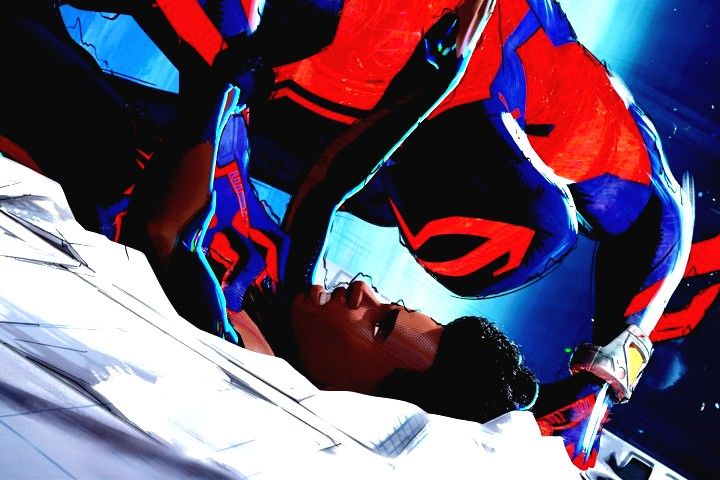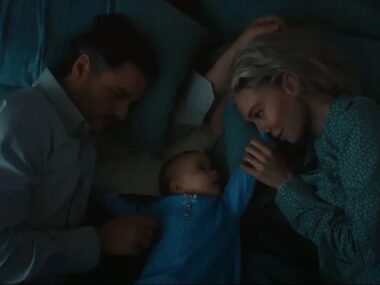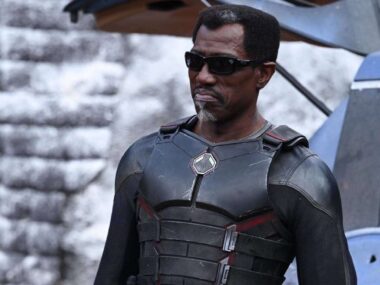Q: Is Miles Morales really an anomaly? Or is Miguel O’Hara making up rules to cover his own tracks?
🕷️ The Spider That Wasn’t Meant for Him
One of the biggest debates amongst fans of Spider-Man: Across The Spider-Verse, is whether or not Miles Morales is an anomaly. Something that shouldn’t exist and could potentially endanger the entire multiverse.
Miguel O’Hara makes his stance pretty clear: Miles Morales was never meant to be Spider-Man. During the film, we learn that the spider that bit Miles actually came from a different universe, Earth-42, not his own world, Earth-1610. According to Miguel, this one little mix-up set off a chain reaction: Earth-42 never got its own Spider-Man, Earth-1610 version of Peter Parker died which opened the door for Miles to adopt the mantle and essentially endangered the multiverse.
Miguel calls Miles the “original anomaly.” In his eyes, Miles is a mistake, a disruption to the natural order of how the multiverse operates. Miguel believes strongly in “canon events” where certain events (most of them tragic) need to happen in a particular universe to maintain its stability. Miles’ existence as Spider-Man is a deviation from established canon that could lead to more anomalies in the future.
But is that really the whole story? Or is Miguel just bending the rules to align with his beliefs?
⚖️ The Rules Aren’t as Solid as Miguel Claims
Miguel’s argument sounds convincing, until you take a closer look at everything else happening in the multiverse.
For one thing, multiple Spider-People can coexist in the same universe with no problem. In the mainstream Earth-616 universe the comics that place Peter Parker, Jessica Drew, Miles Morales, Gwen Stacy and Cindy Moon are just some of the Spider-People that have been active around the same time. And their universe is still standing.
The fact that there are variants of Gwen Stacy that become Spider-Woman should technically be considered an anomaly. Especially since Gwens tend to die after becoming romantically involved with their Peter.
In the Insomniac’s video games, Peter and Miles both share the title of Spider-Man and their universe is still intact. Peter B. Parker’s daughter Mayday is implied to follow in her father’s heroic footsteps and she’s just a toddler. If the rule was “one Spider-Man per universe,” these situations shouldn’t exist. But they do.
And what about those so-called canon events? Miguel is convinced they’re set in stone: the death of a police captain that was close to a Spider-Person, losing a mentor and a love interest. But when Gwen’s dad resigns as police captain instead of dying, her universe doesn’t fall apart. If breaking canon really meant instant catastrophe, Gwen’s world would’ve collapsed but it didn’t.
Even Miles’ own story contradicts Miguel. If Miles were truly outside the system, canon events shouldn’t apply to him. But they do. He lost his uncle and his dad is about to become police captain, putting him right in the path of the same kind of tragedy every Spider-Person faces.
🚩 Miguel’s Hypocrisy Is Hard to Ignore
Then there’s Miguel himself. Unlike most Spider-People, he didn’t get his powers from a radioactive spider bite. His abilities come from genetic experiments that gave him spider-like abilities. He lacks the snarky, playful sense of humor that is a signature trait in every Spider-Man. He has claws that help him climb walls and fangs that produce a paralyzing venom. By his own logic, he doesn’t fit the mold either.
It gets worse: Miguel broke his own rules. He tried to take over the life of another version of himself in a different universe and it ended with that entire universe collapsing. His own personal failure is the very catastrophe he now accuses Miles of risking.
It’s not hard to see what’s happening. Miguel is terrified and guilt-ridden. But instead of facing his past, he’s built an entire Spider-Society around strict rules and rigid canon to make sure no one else repeats his mistake. Even if those rules don’t really make sense when you look at them closely.
🌌 The Spider-Verse Might Be Too Flexible for Miguel
The heart of Across the Spider-Verse isn’t just whether Miles is an anomaly. It’s about whether fate is really as fixed as Miguel says it is.
Miguel clings to a system where everything must follow canon. But Miles challenges that idea. His very existence suggests that Spider-People aren’t defined by some strict pattern. They’re defined by their resilience, their desire to become better heroes and by their refusal to give up, no matter what.
Miguel may call Miles an anomaly but the Spider-Verse itself seems to disagree.






